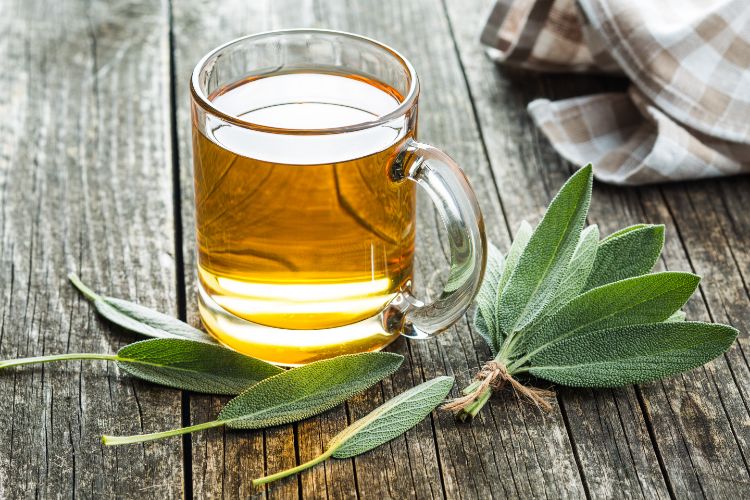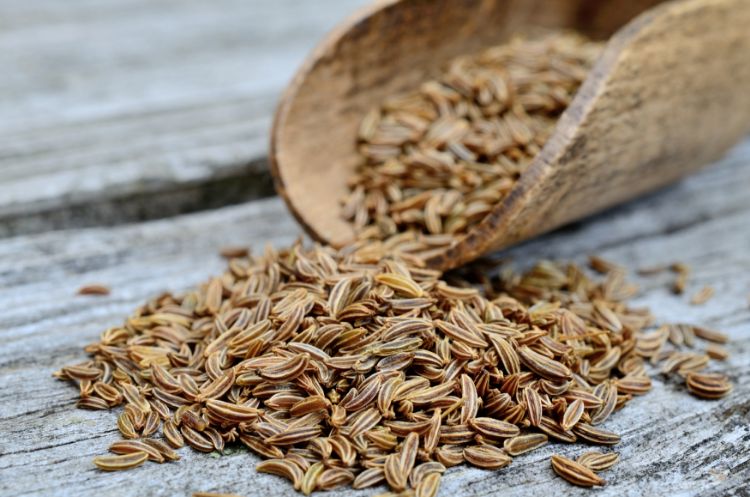Magnesium is a mineral found in the body. Approximately half of the magnesium in the body is found in bones. Because the body depends on magnesium for normal nerve and muscle function, it's imperative to consume enough magnesium for optimal health.
Consumption of nuts, vegetables, fruits and dairy are highly recommended to keep an adequate amount of magnesium in the body. Magnesium-rich herbs and supplements, however, offer an additional boost to increase magnesium levels. Not sure which herbs offer magnesium? Here are 12 magnesium-rich herbs and natural supplements that may improve your heath.
Advertisement
1. Watercress
Adding 1 cup of watercress to a meal can provide an additional 7 mg of magnesium to your diet. Watercress is more than a plate garnish; this leafy green may reduce blood pressure and fend off certain types of cancer. In addition to magnesium, watercress is packed with calcium and potassium.
Adding 1 cup of watercress to a meal can provide an additional 7 mg of magnesium to your diet. Watercress is more than a plate garnish; this leafy green may reduce blood pressure and fend off certain types of cancer. In addition to magnesium, watercress is packed with calcium and potassium.

larry mcguirk / Shutterstock
2. Rosemary
Not only does this fragrant spice contain magnesium, but it's recognized for its aid in digestion issues. Consumption of rosemary may help with heartburn, intestinal gas and loss of appetite. The magnesium-rich spice may also treat inflammation associated with gout.
Not only does this fragrant spice contain magnesium, but it's recognized for its aid in digestion issues. Consumption of rosemary may help with heartburn, intestinal gas and loss of appetite. The magnesium-rich spice may also treat inflammation associated with gout.

topotishka / Shutterstock
3. Basil
Consumption of 2 tsbsp of basil offers the body 3 mg of magnesium. The high magnesium levels in basil increase blood flow and may improve cardiovascular health. Pick fresh basil leaves from a garden and add them to favorite meal.
Consumption of 2 tsbsp of basil offers the body 3 mg of magnesium. The high magnesium levels in basil increase blood flow and may improve cardiovascular health. Pick fresh basil leaves from a garden and add them to favorite meal.

Billion Photos / Shutterstock
4. Flaxseed
High in minerals such as magnesium, potassium zinc and fiber, flaxseed can be added to cereals and salad. Flaxseed is very rich in omega-3 fatty acids. Consumption of flaxseed may aid in lowering cholesterol and reducing inflammation.
High in minerals such as magnesium, potassium zinc and fiber, flaxseed can be added to cereals and salad. Flaxseed is very rich in omega-3 fatty acids. Consumption of flaxseed may aid in lowering cholesterol and reducing inflammation.

Michelle Lee Photography / Shutterstock
5. Parsley
Parsley is loaded with beneficial nutrients, essential oils and antioxidants. It has been used to naturally treat a wide array of symptoms and conditions. Add 1 tbsp of parsley to a recipe to add 2 mg of magnesium to a meal.
Parsley is loaded with beneficial nutrients, essential oils and antioxidants. It has been used to naturally treat a wide array of symptoms and conditions. Add 1 tbsp of parsley to a recipe to add 2 mg of magnesium to a meal.

Real Moment / Shutterstock
6. Sage
Naturally treat skin and improve memory with sage. This herb is very rich in magnesium, potassium and vitamin K. Consuming 1 tbsp of ground sage offers about 9 mg of magnesium to the body.
Naturally treat skin and improve memory with sage. This herb is very rich in magnesium, potassium and vitamin K. Consuming 1 tbsp of ground sage offers about 9 mg of magnesium to the body.

Jiri Hera / Shutterstock
7. Saffron
Known for its earthy, pungent scent, saffron was used long ago to dye textiles. Today we know saffron is more valuable when consumed, as it's loaded with magnesium, potassium, iron and Vitamin C. This spice is also recognized for its carotenoids and antioxidants, which aid against free radical damage to the body.
Known for its earthy, pungent scent, saffron was used long ago to dye textiles. Today we know saffron is more valuable when consumed, as it's loaded with magnesium, potassium, iron and Vitamin C. This spice is also recognized for its carotenoids and antioxidants, which aid against free radical damage to the body.

Swapan Photography / Shutterstock
8. Thyme
This herb is used for many purposes but is often recognized for its antiseptic and antibacterial properties. Thyme is loaded with Vitamin C, iron, zinc, folate, phosphorus, potassium and magnesium. There are more than 350 species of thyme. These unique plant species offer different properties and benefits. Consuming 1 tsp of common thyme offers the body 1 mg of magnesium.
This herb is used for many purposes but is often recognized for its antiseptic and antibacterial properties. Thyme is loaded with Vitamin C, iron, zinc, folate, phosphorus, potassium and magnesium. There are more than 350 species of thyme. These unique plant species offer different properties and benefits. Consuming 1 tsp of common thyme offers the body 1 mg of magnesium.

Julia Sudnitskaya / Shutterstock
9. Cilantro
Rich in nutrients, including vitamins C and K, magnesium, phosphorous, potassium and iron, cilantro may lower blood pressure and LDL cholesterol. Cilantro may also be recognized by the name "coriander." This culinary herb is used in many dishes and is beneficial to overall health.
Rich in nutrients, including vitamins C and K, magnesium, phosphorous, potassium and iron, cilantro may lower blood pressure and LDL cholesterol. Cilantro may also be recognized by the name "coriander." This culinary herb is used in many dishes and is beneficial to overall health.

KatyaPulina / Shutterstock
10. Celery seeds
Although Vitamin K plays the most dramatic role in the properties of celery, celery seeds are magnesium-rich and offer a wide variety of vitamins and nutrients. As far back as the ninth century, celery was first recognized as a medicine rather than a food. Perhaps everyone's ancestors were onto something, as celery seeds have many beneficial uses to the body.
Although Vitamin K plays the most dramatic role in the properties of celery, celery seeds are magnesium-rich and offer a wide variety of vitamins and nutrients. As far back as the ninth century, celery was first recognized as a medicine rather than a food. Perhaps everyone's ancestors were onto something, as celery seeds have many beneficial uses to the body.

Ulada / Shutterstock
11. Oregano
A magnesium-rich herb, oregano is also rich in fiber, iron and potassium, as well as vitamins A, C, E and K. In addition to its nutritional properties, oregano is recognized for its anti-inflammatory, anti-microbial and anti-fungal effects. Oregano contains rosmarinic acid, which is a powerful antioxidant that may support immune system health.
A magnesium-rich herb, oregano is also rich in fiber, iron and potassium, as well as vitamins A, C, E and K. In addition to its nutritional properties, oregano is recognized for its anti-inflammatory, anti-microbial and anti-fungal effects. Oregano contains rosmarinic acid, which is a powerful antioxidant that may support immune system health.

catalina.m / Shutterstock
12. Caraway seed
Primarily used to aid in digestion, caraway seeds are very rich in magnesium, iron, zinc, copper, potassium and selenium. The unique properties of caraway may help reduce LDL cholesterol, prevent degenerative neurological diseases and reduce the risk of certain types of cancer.
Primarily used to aid in digestion, caraway seeds are very rich in magnesium, iron, zinc, copper, potassium and selenium. The unique properties of caraway may help reduce LDL cholesterol, prevent degenerative neurological diseases and reduce the risk of certain types of cancer.
Advertisement

Alexandra_F / Shutterstock

